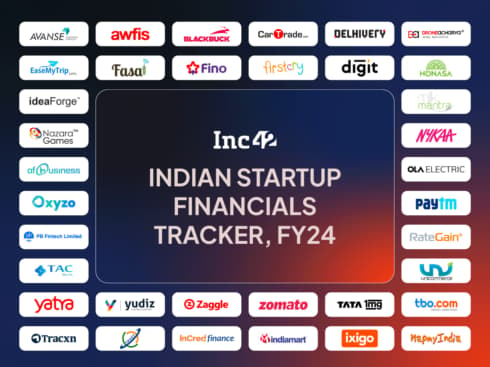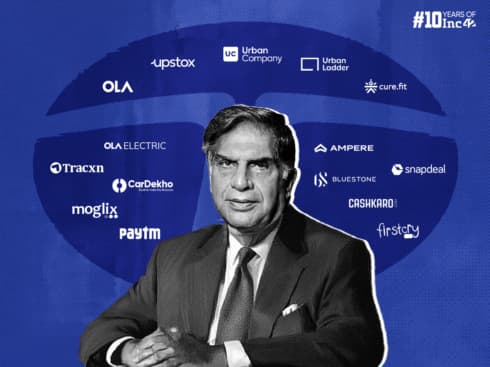A recent Inc42 survey of 50 VC and debt firms (part of the Inc42’s latest Indian Tech Startup Funding Report Q3 2024) revealed that 92% of investors are optimistic about India's semiconductor ambitions and are willing to invest
As many as 63% of these investors said they are willing to fund intellectual property (IP)-focussed chip startups, while 58% are willing to fund semiconductor design services
As per Inc42’s latest report, the total funding raised by homegrown semiconductor startups shot up 100% on a year-on-year basis to $3.4 Bn in the September quarter
Fuelled by the Indian government’s seriousness towards increasing local electronic equipment manufacturing and reducing the country’s reliance on imports, semiconductors talks have taken centre stage, and the nation appears to be hell-bent on solidifying its position as a global semiconductor hub.
The Centre’s policy push to enable global giants to establish semicon fabs in the country and its intention to create a highly efficient semiconductor value chain has only made this realm more attractive to venture capitalists (VCs).
In line with this thesis, a recent Inc42 survey of 50 VC and debt firms (part of the Inc42’s latest ‘Indian Tech Startup Funding Report, Q3 2024’) revealed that 92% of investors are optimistic about India’s semiconductor ambitions and are willing to invest.
Besides, as many as 63% of these investors said they are willing to fund intellectual property (IP)-focussed chip startups, while 58% are willing to fund semiconductor design services.
![]()
Meanwhile, since the IP-focussed chip firm Nvidia surpassed the world’s top chip manufacturer Taiwan Semiconductor Manufacturing Company (TSMC) in market cap, the early investors are expecting better long-term returns in the semicon IP space.
It is pertinent to note that in recent months, as the semiconductor ecosystem started seeing funding flow from external investors, a majority of the funds have gone into fabless IP developers or system-on-chip (SoC) startups that are combining hardware and software (IP) to create application-specific systems.
For instance, in 2023, InCore was backed by Peak XV Partners and SoC developer Mindgrove received funding from Peak XV and Speciale Invest. Recently, SoC solutions provider BigEndian Semiconductors raised $3 Mn in its seed funding round led by Vertex Ventures SEA & India.
On the other hand, Integrated Circuits (ICs) design startup FermionIC Design also raised $6 Mn recently from Lucky Investment Managers’ Ashish Kacholia and his associates.
Also, this pool size is expanding from a handful of investors, including Peak XV, Speciale Invest, Exfinity Ventures, Celesta Capital, Whiteboard Capital, and IndiaQuotient, who have bet big on semiconductor companies till 2023.
Access Free ReportSo, What Do VCs Have To Say?
Moving on, about 21% of the investors who participated in the survey are interested in investing in semiconductor fabs, even though India’s fabrication story has yet to take off in a big way. Also, a few multinational companies have just started establishing their manufacturing plants in the country.
Besides, chip manufacturing is a highly cost-intensive business, therefore this is not the area VCs are skewed towards. Rather, top semiconductor investors believe that the fab manufacturers need support from the government.
However, as the fabrication industry becomes more established and India begins to cater to the global market with domestically manufactured chips, it might also become attractive for the VCs in the future.
Speaking with Inc42, Peak XV’s managing director Mohit Bhatnagar said, “It is a foregone conclusion that semiconductors are strategically important for India and therefore, it is inevitable that we will build all aspects of the semiconductor value chain here. We are starting with the design and, over time, it will get into the larger capex-intensive play. But it is hard to argue that 10 years from now, we will not have much more advanced semiconductor capabilities in the country.”
Bhatnagar said that the reason behind this development is partly because 20% of the world’s semiconductor design workforce, people who worked at Intel, AMD, and other top global semiconductor firms, is in India today.
![]()
Arjun Rao of Speciale Invest often highlights that the country should currently be focussing on becoming self-reliant in designing and developing chips.
“India will build fabs over a longer period but to build chips and systems and products for hoards of applications, we need product design talent and engineering talent,” Rao told Inc42 in a conversation earlier this year.
In fact, Speciale Invest is interested in the market opportunity created by applications and startups building SoCs for these applications.
“Speciale is interested in the market opportunity that millions of units of fans, fridges, microwaves, wearable, two-wheelers, four-wheelers, smart cities, industrial setups, factories, and robotics create for different types of sensors, controllers, actuators, and chips. If we can indigenously design and develop these chips, the fabrications can be done anywhere till India has its own fabs,” Rao had said.
He highlighted Speciale Invest’s investment in Morphing Machines, which is building its IP-led processor REDEFINE – one of the few many-core processors in the world that integrates various domain-specific architectures (DSAs) on a single chip.
Meanwhile, as per Inc42’s estimates, India’s semiconductor market is set to breach the $150 Bn mark by 2030, with AI chips contributing $21 Bn to it.
Access Free ReportGujarat Gets A Shot In The Arm
While Bengaluru has so far been the hub for semiconductor companies in India (in terms of the concentration of these companies in the city), VCs now believe that Ahmedabad is all set to change that and emerge as the country’s prime semiconductor hub.
As per Inc42’s survey, 59% of investors agree with the aforementioned statement, while 50% believe Bengaluru will continue to retain its position as the country’s only semiconductor hub. Next, at least 50% of investors voted for Hyderabad in the survey, which allowed respondents to choose multiple cities.
![]()
A majority of investors are placing significant bets on Ahmedabad because the Indian government has laid the groundwork for multiple fabs to spring up in Gujarat. In June 2023, the cabinet approved Micron’s proposal for setting up a semiconductor unit in Sanand, Ahmedabad.
The government approved three more semiconductor units in February this year. Tata Electronics is also setting up a semiconductor fab in Dholera, while CG Power is setting up one semiconductor unit at Sanand in Ahmedabad. Tata Electronics is on track to release its first chip by 2026.
Recently, the Centre also approved the proposal of Kaynes Semicon to set up a semiconductor unit in Gujarat with an investment of INR 3,300 Cr. The company is building its outsourced semiconductor assembly and test (OSAT) unit in the state.
However, it must be noted that dethroning Bengaluru is not going to be easy, as a majority of the design, IP, and even processor companies continue to emerge from Bengaluru.
Supporting this growth, as per the former NITI Aayog CEO and India’s G20 Sherpa Amitabh Kant, is Karnataka’s Bengaluru-Mysuru belt, which offers the “best” ecosystem for semiconductor design and manufacturing in India.
As of now, barring a few challenges, the semiconductor ecosystem in India is all set to carve a niche in the global market as participation from public and private players strengthens. A testament to this is the total funding raised by homegrown semiconductor startups, which as per Inc42’s latest report shot up 100% on a year-on-year basis to $3.4 Bn in the September quarter.
Access Free Report[Edited By Shishir Parasher]































 Ad-lite browsing experience
Ad-lite browsing experience